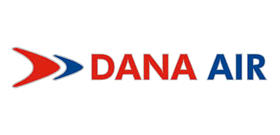 Nigeria Moves to Liquidate Dana Air Assets Amid Safety and Financial Crisis
Nigeria Moves to Liquidate Dana Air Assets Amid Safety and Financial Crisis
Nigeria’s aviation sector is witnessing a significant shake-up as the government prepares to sell off the remaining assets of Dana Air, aiming to settle outstanding debts owed to passengers and industry partners. This decisive step follows the withdrawal of Dana Air’s Air Transport Certificate (CTA) and operating license, moves triggered by serious concerns over the carrier’s safety standards and financial viability.
Grounded since April 2024, Dana Air once operated a fleet primarily made up of MD-82/83 and Boeing 737 Classic aircraft. These assets now form the heart of a debt recovery process that will see their liquidation used to reimburse affected stakeholders. For travel professionals in sub-Saharan Africa, this marks a pivotal moment in a market where airline stability and passenger confidence are vital drivers of tourism and business growth.
The government’s intervention underscores the increasing regulatory scrutiny being applied to the region’s aviation sector. By prioritising the settlement of debts to passengers and agencies, Nigerian authorities are sending a clear message about the importance of consumer protection and financial responsibility within the industry. Such measures are also intended to reassure the travelling public and trade partners, encouraging continued investment and engagement in Nigeria’s dynamic but often volatile air travel market.
The situation with Dana Air has brought longstanding industry challenges into sharp focus, including the risks associated with ageing fleets, shifting regulatory requirements, and the complex financial pressures facing many African carriers. For years, Dana Air’s operations relied on older aircraft models, a common scenario among regional airlines contending with high capital costs and limited access to new equipment. While this approach may offer short-term savings, it often carries higher long-term risks in terms of maintenance, reliability, and compliance with evolving international standards.
As the liquidation process unfolds, tourism professionals and travel sellers will be closely watching how the government manages the distribution of proceeds and the timeline for passenger reimbursement. The effectiveness and transparency of this process could set a precedent for future airline insolvencies across Africa, particularly as the industry seeks to build greater resilience and restore traveller confidence following a series of high-profile disruptions in recent years.
For the wider African aviation and tourism landscape, the Dana Air case offers valuable lessons. It highlights the need for stronger governance, more robust oversight, and greater collaboration between regulators, airlines, and the travel trade. The episode also underscores the importance of modernising fleets and investing in operational safety—both of which will be critical as the continent’s air travel sector looks to compete with global peers and support the growth of intra-African tourism.
As Nigeria moves forward with the sale of Dana Air’s assets, the industry is being reminded that financial and operational discipline are now non-negotiable. For those responsible for selling and promoting air travel in Africa, the focus must remain on reliable partners, transparent processes, and a commitment to passenger welfare—key ingredients for building a sustainable and competitive aviation ecosystem in the years ahead.
